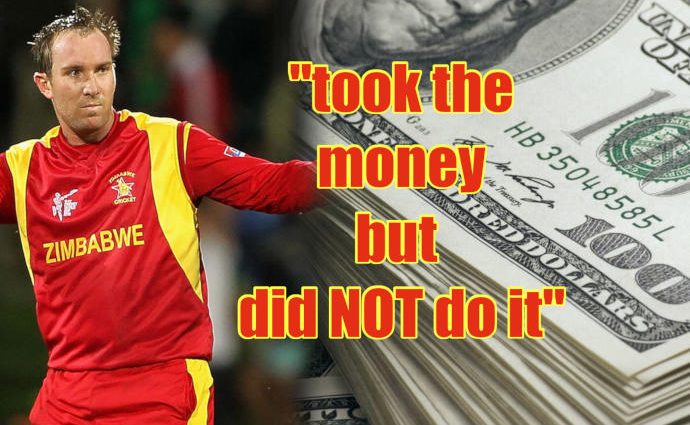Throwing the light back on match-fixing, when Zimbabwe cricketer Brendan Taylor made the statement (on Twitter) on January 24, the stench of money which controls the betting around (and partially the game) came out in the open. And India was once again at the epicentre of it all.
Perhaps the money in the game is so big that the weight of it is too much to bear. No wonder the revelation garnered headlines around the world.
To my family, friends and supporters. Here is my full statement. Thank you! pic.twitter.com/sVCckD4PMV
— Brendan Taylor (@BrendanTaylor86) January 24, 2022
The former Zimbabwe captain Brendan Taylor is about to be banned for his role (read mistake of participating in the meeting) in match / spot fixing which he claims never happened.
Brendan says he accepts the punishment and wants this to be a lesson for others to be wary of what surrounds them when they are playing the game.
Should anyone be surprised by the claim made by former Zimbabwe captain Brendan Taylor?
The answer is no.
Narrating the incident of 2019, in a detailed statement he posted on social media on Monday, Brendan Taylor said that in the October of that year, he was offered $15,000 by an Indian businessman to merely travel to India to discuss potential sponsorship deals and the possibility of a T20 competition in Zimbabwe. Once in India, partying with the businessman and his friends after successful negotiations, he used cocaine and was secretly filmed and then threatened and coerced to acquiesce to indulge in match-fixing. He said he was warned that they would make the video public if he did not agree.
To only get away from India and get back home he said yes and vehemently denies ever being actually involved in any match-fixing.
““The timing was such that we hadn’t been paid for 6 months by Zimbabwe cricket (the country’s cricket board) and it was questionable whether Zimbabwe would be able to continue playing in the international arena. So I made the journey”, he wrote in a remorseful and open statement.
I’d fallen for it. I’d willingly walked into a situation that has changed my life forever,”
Taylor was given the promised US$ 15,000 but was then told that it was a “deposit” for spot-fixing and that an additional US$ 20,000 would be paid once he carried out the fix.
“I took the money so I could get on a plane and leave India. I felt I had no choice at the time because saying no was clearly not an option. All I knew was I had to get out of there,” he said.
Strangely, only last week, the Karnataka High Court has held that match-fixing may be dishonest but is not a crime under the Indian law.
A single judge bench of Justice Sreenivas Harish Kumar said, “It is true that if a player indulges in match fixing, a general feeling will arise that he has cheated the lovers of the game. But, this general feeling does not give rise to an offence”.
The high court has ruled that “match fixing may indicate dishonesty, indiscipline and mental corruption of a player and for this purpose the BCCI is the authority to initiate disciplinary action. If the bye-laws of the BCCI provide for initiation of disciplinary action against a player, such an action is permitted but registration of an FIR on the ground that a crime punishable under section 420 IPC has been committed, is not permitted,” the high court has ruled.
“Even if the entire charge sheet averments are taken to be true on their face value, they do not constitute an offence,” the court observed.
The bench while allowing the petitions filed by accused Abrar Kazi and others who were chargesheeted under section 420 and section 120 (b) of the Indian Penal Code, for allegedly fixing the Karnataka Premier League matches in the year 2019.
Similar Posts by The Author:
- Problems of Arvind Kejriwal lie in the Charge-sheet against Manish Sisodia
- ABC Ram Temple coverage: ABC Ombudsman’s “No Bias” report – a slap on the face of Australian Hindus
- Defamation dogfights are dogging the leader: Should John Pesutto step down to come back later?
- ASIO boss Mike Burgess MUST name the rogue politician, academics
- Who can stop John Pesutto from becoming Premier of Victoria?

